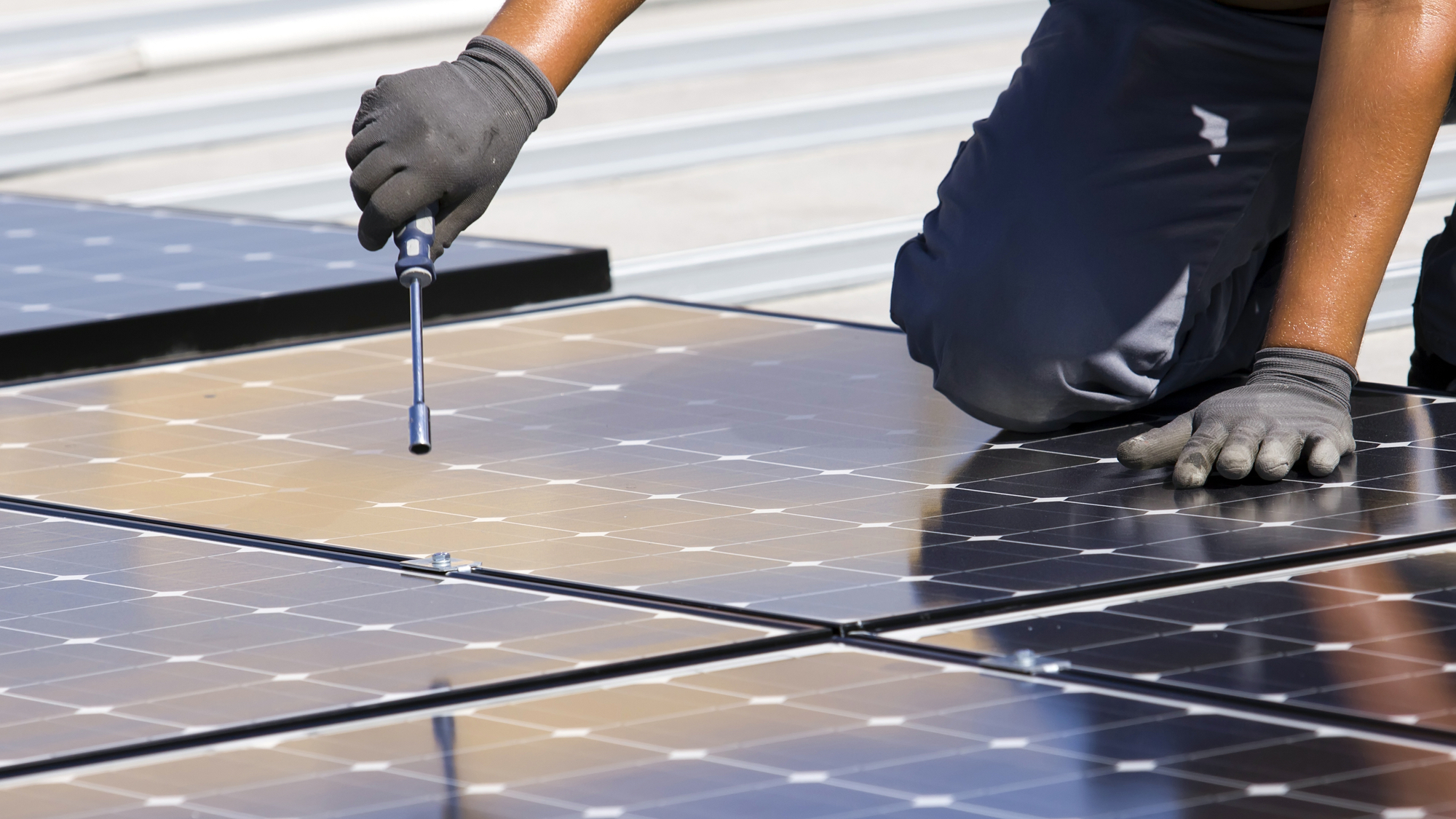

The Department of Energy is providing a nearly $400 million loan to a startup aimed at scaling the manufacturing and deployment of a zinc-based alternative to rechargeable lithium batteries. If realized, Eos Energy’s utility- and industrial-scale zinc-bromine battery energy storage system (BESS) could provide cheaper, vastly more sustainable options for the country’s burgeoning renewable power infrastructure.
According to the DOE’s recent announcement, Eos Energy’s project could annually produce as much as 8 gigawatt hours (GWh) of storage capacity by 2026—enough to instantly power over 300,000 US homes, or meet around 130,000 homes’ annual electricity requirements.
Because renewable sources like wind and solar produce power intermittently, storage solutions are necessary to house the energy for later use. For years, lithium battery systems’ prices have decreased as their efficiencies increased, but the metal’s comparative rarity presents a challenging hurdle for scaling green energy infrastructure.
[Related: How an innovative battery system in the Bronx will help charge up NYC’s grid]
Unlike lithium-ion and lithium iron phosphate batteries, alternatives such as the Eos Z3 design rely on zinc-based cathodes alongside a water-based electrolyte, notes MIT Technology Review. This important distinction both increases their stability, as well as makes it incredibly difficult for them to support combustion. Zinc-bromine batteries meanwhile also boast lifespans as long as 20 years, while existing lithium options only manage between 10 and 15 years. What’s more, zinc is considered the world’s fourth most produced metal.
Per MIT, Eos’s semi-autonomous facility in Pennsylvania currently produces around 540 megawatt-hours annually, although it doesn’t operate at full capacity. The DOE’s conditional commitment loan—disbursed only after certain financial, technical, and other operating stipulations are met—could boost the Eos’ factory towards full-power.
[Related: How the massive ‘flow battery’ coming to an Army facility in Colorado will work]
“Today’s energy storage market is nascent but rapidly growing and is dominated by lithium-ion and lithium iron phosphate battery technologies, which typically serve short-term duration applications (approximately 4 hours),” the DOE explained in its announcement. “… Eos’s technology is also specifically designed for long-duration grid-scale stationary battery storage that can assist in meeting the energy grids’ growing demand with increasing amounts of renewable energy penetration.”
The DOE also notes that “over time,” Eos expects to source almost all of its materials within the US, thus better insulating its product against the market volatility and supply chain issues. While the DOE previously issued similar loans to battery recycling and geothermal energy projects, last week’s announcement marks the first funding offered to a manufacturer of lithium-battery alternatives.
